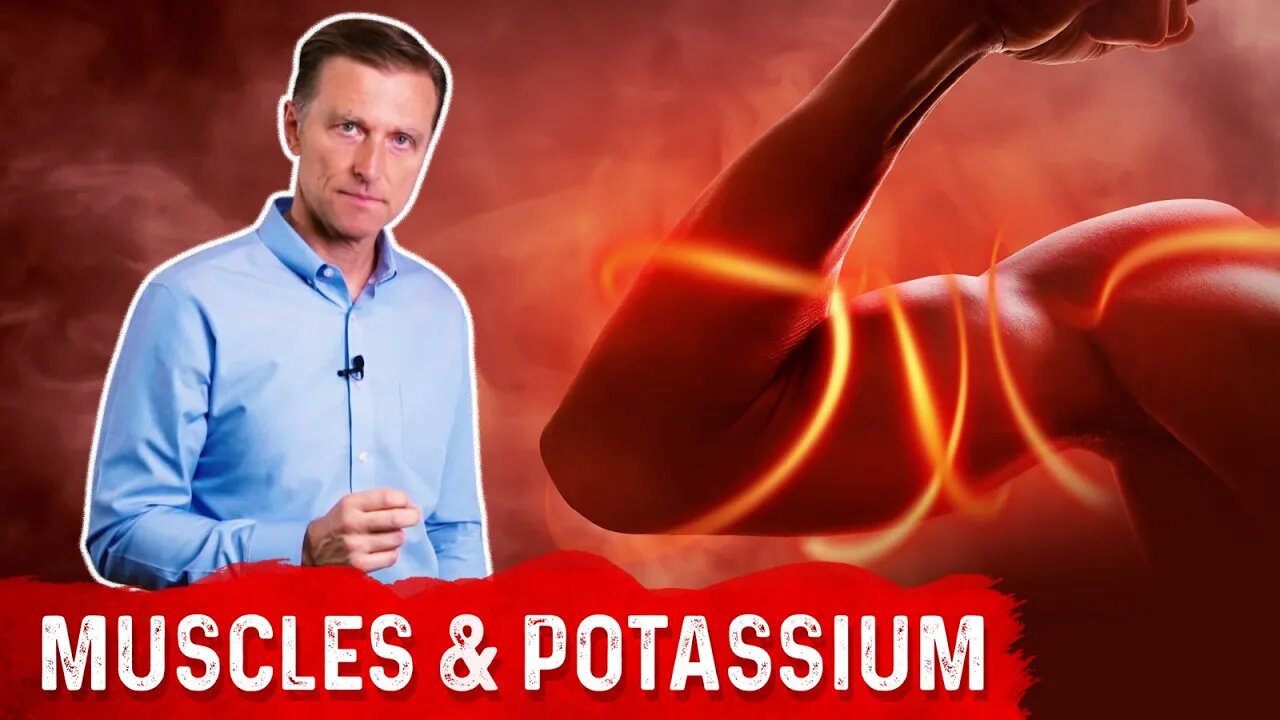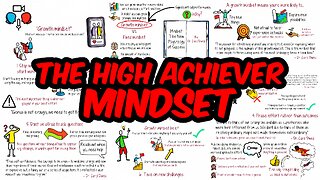Premium Only Content

Why Your Muscles Need Most of Your Potassium
Potassium is very important for the body, but your muscles need most of it. Here’s why.
Timestamps:
0:00 Your muscles and potassium
0:25 The sodium-potassium pump
1:55 Membrane potential
3:30 Sodium and potassium
3:50 Fasting and potassium
4:05 What happens when potassium becomes low
Dr. Berg's High Potassium Electrolytes: https://bit.ly/3jmgqkh
Today we’re going to talk about why your muscles need most of your potassium. What’s unique about potassium is that it’s one mineral that we need a tremendous amount of. We need 4,700 mg of potassium. Out of all of the tissues in the body, 80% is needed mainly for your muscles.
There are billions of little pumps (sodium-potassium pumps) in the body that keep potassium on the inside of the cell and sodium outside of the cell. Any time you have two different minerals that are held apart like that, by a pump and by a membrane, you create a battery. The flow of electrons generates a certain amount of energy that’s stored in the battery. Your cells are mini batteries. Potassium is needed as a raw material to make sure the pump works.
Because this pump allows two potassium in and three potassium out, that difference creates a voltage. In the muscle, it’s about 90 millivolts compared to the skin, which is about 50 millivolts.
The voltage is the power of the battery created by the difference of potassium and sodium held apart. Another term for this is called membrane potential. When it’s at rest, it’s like a battery, but when it gets activated, it starts releasing electrical charge that then causes the muscle to contract. It also creates nerve impulses and causes glands to secrete.
Once the muscle is activated to contract, you lose potassium. The more exercise you do, and the more you sweat, the more you lose electrolytes. If you’re injured, or you go through a surgery or trauma, you will lose potassium. When the thyroid works, you’ll lose potassium. Consuming sugar will also cause you to lose potassium.
Sodium can be retained in the body, but we typically lose much more potassium. When you do fasting, your body will actually retain more potassium.
What happens when potassium becomes low:
• You can have muscle weakness
• You can become tired
• You can lose endurance
• Your muscles can start to cramp
Dr. Eric Berg DC Bio:
Dr. Berg, age 58, is a chiropractor who specializes in Healthy Ketosis & Intermittent Fasting. He is the author of the best-selling book The Healthy Keto Plan, and is the Director of Dr. Berg Nutritionals. He no longer practices, but focuses on health education through social media.
DR. BERG'S SHOP: https://bit.ly/30xq5f3
Follow us on FACEBOOK: fb.me/DrEricBerg
Send a Message to his team: m.me/DrEricBerg
ABOUT DR. BERG: https://bit.ly/30y2NWC
Disclaimer:
Dr. Eric Berg received his Doctor of Chiropractic degree from Palmer College of Chiropractic in 1988. His use of “doctor” or “Dr.” in relation to himself solely refers to that degree. Dr. Berg is a licensed chiropractor in Virginia, California, and Louisiana, but he no longer practices chiropractic in any state and does not see patients so he can focus on educating people as a full time activity, yet he maintains an active license. This video is for general informational purposes only. It should not be used to self-diagnose and it is not a substitute for a medical exam, cure, treatment, diagnosis, and prescription or recommendation. It does not create a doctor-patient relationship between Dr. Berg and you. You should not make any change in your health regimen or diet before first consulting a physician and obtaining a medical exam, diagnosis, and recommendation. Always seek the advice of a physician or other qualified health provider with any questions you may have regarding a medical condition.
Thanks for watching! I hope this helps you better understand why your muscles need most of your potassium.
-
 5:07
5:07
Dr. Eric Berg
12 days agoThis ONE Lie Causes 90% of Chronic Disease
5.37K11 -
 8:59
8:59
The Art of Improvement
8 hours agoHow to Build the Most Powerful Mindset for Success
68 -
 LIVE
LIVE
GritsGG
1 day ago36 Hour Stream! Most Wins 3420+ 🧠
1,280 watching -
 1:26:16
1:26:16
Michael Franzese
18 hours agoMenendez Brothers Denied Parole – Newsom Holds Their Fate
105K79 -
 2:36:02
2:36:02
I_Came_With_Fire_Podcast
16 hours agoSecret Origins of Transhumanism & The New Atlantis
28.2K16 -
 LIVE
LIVE
sophiesnazz
2 hours ago $0.01 earnedLETS TALK ABOUT BO7 !socials !specs
53 watching -
 3:01:44
3:01:44
MadHouseRetro
3 hours agoPUFFCO PIVIOT BUNDLE GIVEAWAY! and Spider-man 2 playthough!
7.09K1 -
 1:12:40
1:12:40
Wendy Bell Radio
13 hours agoPet Talk With The Pet Doc
61.9K33 -
 LIVE
LIVE
Biscotti-B23
2 hours ago $0.01 earned🔴 LIVE TOURNAMENT PRACTICE ⚔ TOP 100 RANK 👑 DEMON SLAYER HINOKAMI CHRONICLES 2
56 watching -
 8:35:02
8:35:02
FusedAegisTV
17 hours agoStreet Fighter 6 FINALS, CS2 Semifinals | $1,250,000 | Riyadh, Saudi Arabia EWC 2025 !estv
46.4K7